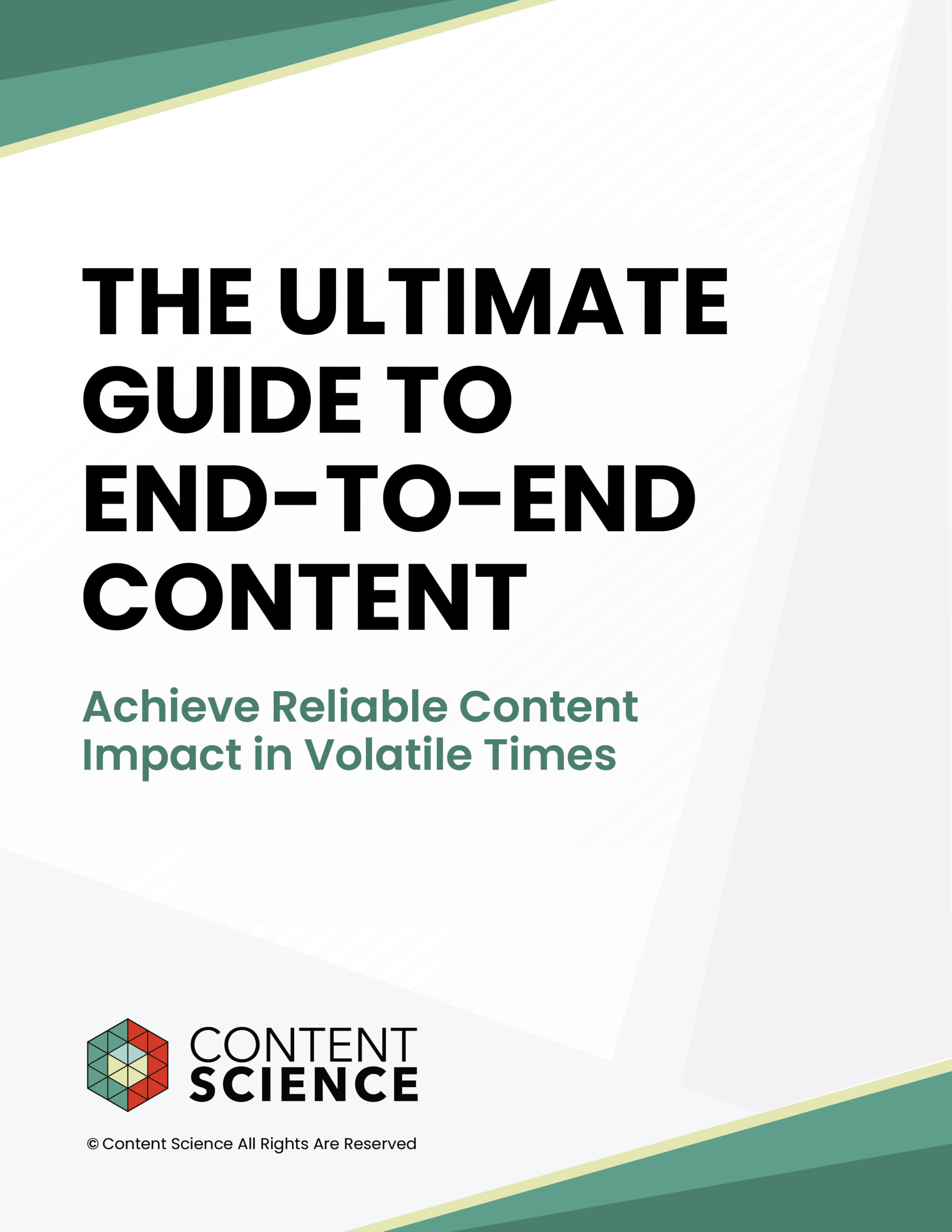
Omniverse means relating to the universe, and more specifically, Merriam-Webster defines it as “a universe that is spatiotemporally four-dimensional.” In case you don’t use spatiotemporal in everyday conversation, it means having both spatial and temporal qualities … so it’s pretty huge.
In relation to content, the internet is an infinite abyss of video, social sharing, images, and copy content – the content omniverse. Executives and practitioners need to know not only the term but key statistics in this content omniverse fact sheet. Why? Because this vast vortex of content is growing bigger and bigger by the second. As of January 2024, there were more than five billion internet users worldwide, which is 63.5 percent of the global population, according to DataReportal.
The average American spends 6 hours and 58 minutes online per day. Social media accounts for 2 hours and 27 minutes of screen time daily. The average American spends 2 hours and 37 minutes streaming video every day. — Allconnect
3.25 billion hours of video are watched on YouTube each month. — Fortunelords
The content omniverse is ever-expanding, growing in mind numbing amounts. Often when people think of content, they might imagine written words, text and images, especially those promoted on Facebook, but today, video is all the rage. On YouTube alone, 720 thousand hours of video are uploaded daily with the website receiving 113 billion visits each month. This results in consumers viewing over 1 billion hours of YouTube videos each day.
When Google acquired YouTube back in 2006, the price tag was $1.65 billion, and that was less than two years from when the site was originally launched. In some more eye-opening statistics, more video content is uploaded to YouTube in just one month than the three major U.S. networks (ABC, CBS, and NBC) have created in more than 60 years of broadcasting. Now, that’s an awful lot of screentime.
And, let’s not forget about the podcasting boom. In 2023, Eighty-three percent of Americans age 12+ (approximately 237 million people) are now familiar with podcasting, up from 79% in 2022. And, 42% (120 million) listen monthly, up from 38% in 2022, according to Edison Research.
According to eMarketer, in 2013 social networking reached nearly one in four around the world. In 2023, 15 social media platforms reported more than 400 million active users. — DataReportal
Who is devouring all this content? YouTube is one thing, but what about other social media? With almost 4.95 billion people around the world using social media, that is where a majority portion of content hungry consumers thrive. A quick breakdown shows the following:
Global Activeness on Social Media
- Almost 3 billion users in Asia
- Over 345 million users in Latin America
- Over 390 million users in Africa
- Over 271 million users in Central and Western Europe
- Over 190 million users in Eastern Europe
- Just over 447 million in the North America
When you combine social media with YouTube, 100 million hours of video are watched on Facebook daily and Twitter reports 2 billion video views every day.
The image content universe contains 750 million monthly active users on Snapchat, 2 billion monthly active users on Instagram, and over 3 billion monthly active users on Facebook. — Statista
While YouTube rules the video universe online, Facebook friends are posting 350 million new photos daily and sharing them with friends and family. Over on Flickr, their 112 million users are sharing 3.5 million photos each day. Finally, Instagram’s 2.5 billion monthly active users post 95 million photos to the platform every day.
The recent growth of short-form video content provides content creators with a new avenue to reach their audiences, particularly younger audiences. TikTok boasts over 1.5 billion monthly active users, 63% of which are between the ages of 18 and 34. Oberlo found that TikTok boasted the largest average daily time spent on any social media platform with 55.8 minutes. Marketers are already capitalizing on the explosive growth of short-form video, with 33% of marketers investing in the format in 2023.
Content can build authority, help grow your brand, and extend your reach. But, unfortunately, all too often leaders can incorrectly assume that content is simply a cost. In other words, they view content as an expense like travel, not as an asset worthy of investment because it has a direct impact on business goals over time. I often come across executives with this mindset, who change their views upon seeing the ROI of content that other brands are achieving. — Colleen Jones
The Google Search index contains hundreds of billions of web pages and is well over 100,000,000 gigabytes in size. For bloggers, WordPress users produce about 70 million new posts and 77 million new comments each month. When it comes to consuming news-related content, Pew Research reports 86% of Americans get their news from smartphones, tablets, or computers.
From microcopy to a complete digital transformation, content reigns supreme online. A modern, aligned content strategy helps organizations achieve their goals across departments, breaking down silos and promoting a level of effectiveness many don’t think is possible for their content operations. Regardless of your strategies or goals, staying informed on content trends and pursuing continuing education keeps you ready to make the content omniverse work for you.
Events, Resources, + More
5 Secrets of Content Ops Success: Webinar
Learn how the most successful organizations scale and mature content operations. Based on our research with 700+ content leaders and professionals.
The Ultimate Guide to End-to-End Content
Discover why + how an end-to-end approach is critical in the age of AI with this comprehensive white paper.
The Content Advantage Book
Learn more about the much-anticipated third edition of the highly rated book by Colleen Jones. Preorder the electronic version.
20 Signs of a Content Problem in a High-Stakes Initiative
Use this white paper to diagnose the problem so you can achieve the right solution faster.
Workshop: Are You Ready for AI?
Is your organization really ready for AI at scale? Let the Content Science team guide your leaders through assessing 4 areas of readiness.
Upskill with Content Science Academy
Training for modern content roles through on-demand certifications + courses or live workshops.








Comments
We invite you to share your perspective in a constructive way. To comment, please sign in or register. Our moderating team will review all comments and may edit them for clarity. Our team also may delete comments that are off-topic or disrespectful. All postings become the property of
Content Science Review.